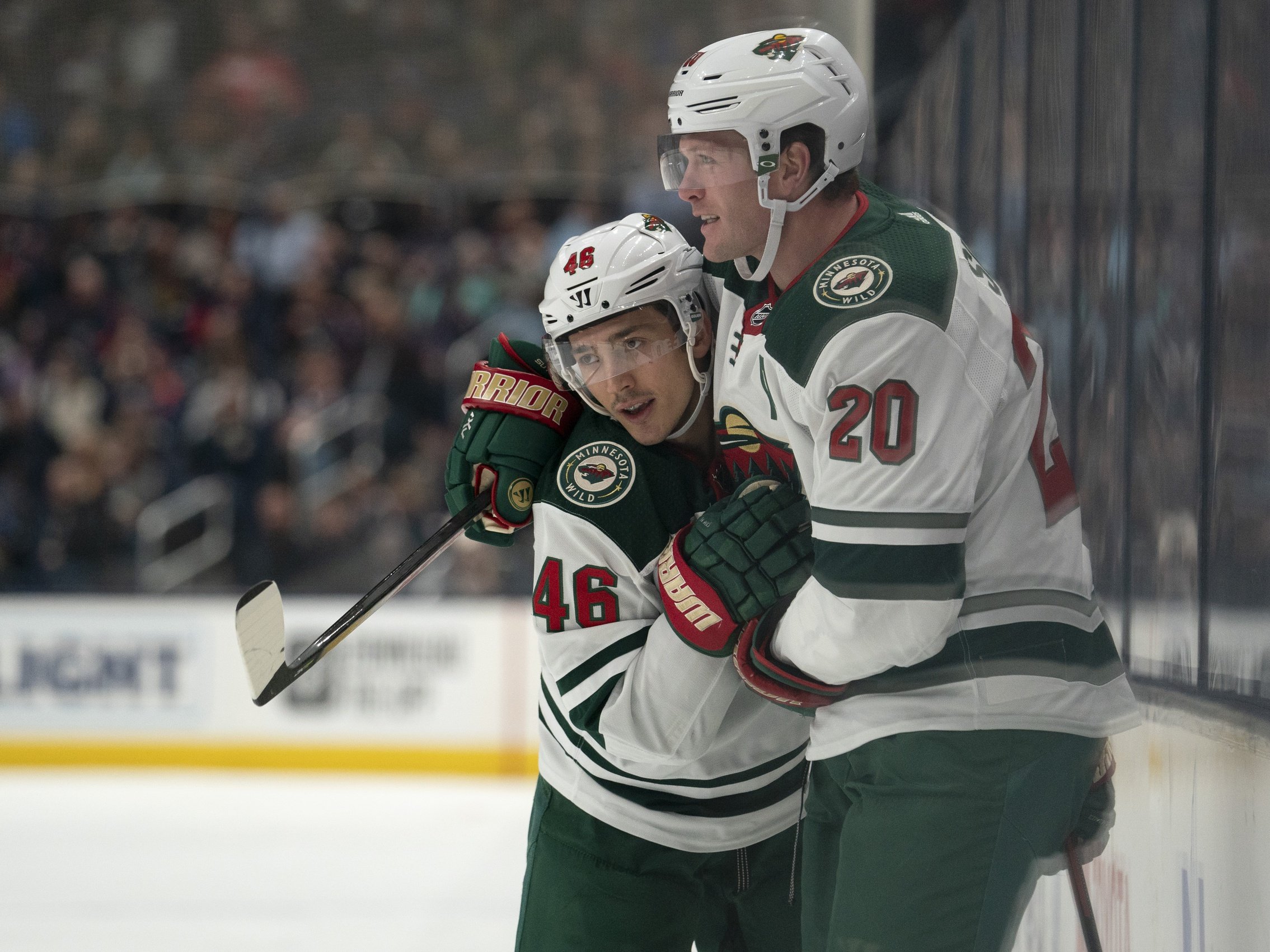
There is nothing that unites the State of Hockey as much as a shared, collective appreciation for Jared Spurgeon. Minnesota Wild fans know that when No. 46 has the puck, they’re in good hands. They also know that when No. 46 doesn’t have the puck, they’re in good hands. He’ll get that puck back soon enough, and then move it back into the offensive zone.
Spurgeon stepped up to save the day in Game 1, to nobody's surprise. Minnesota entered the second period looking tired and clinging to a 1-0 lead. Vancouver was gaining momentum until they tripped Carson Soucy, putting Minnesota on the power play. Spurgeon doubled the lead by hammering home a goal, and the Wild played airtight defense to cruise to victory.
But, of course, Spurgeon gives more than all the Wild needs. He assisted on Kevin Fiala’s opening goal and added an empty net tally to ice the game. It was Spurgeon’s first three-point playoff game, but far from his first clutch postseason moment.
His game-tying goal to send Minnesota into overtime in Game 7 against the Colorado Avalanche is marvelous to watch today. That wasn’t even his first clutch goal that series, as he scored the opening goal in a 2-1 Game 4 victory. He scored a goal to put Minnesota ahead by two in the third period of a Game 4 victory against the Chicago Blackhawks to even a series in 2014. Even in a loss, Spurgeon had two goals in a miraculous almost-comeback against the Dallas Stars in 2016.
Spurgeon is an underrated player, even after getting a big-money contract and more attention. But some parts of his game are more underrated than others. Many will tell you about his great defensive play. Others will point out his brilliant puck movement. But not enough people discuss the fact that Spurgeon is an absolute assassin on the power play.
But he is. Spurgeon’s first goal came on the power play, as has five of his eight postseason goals. Five power play goals since the 2012-13 postseason doesn’t seem like much, but for a defenseman, that’s significant. Spurgeon is tied for fourth among defensemen in that time, alongside Brent Burns and Ryan McDonagh, both of whom have over 25 more playoff games than Spurgeon in that time.
And on a per-minute basis, Spurgeon has been nothing short of dominant. Five goals in 92 power play minutes comes out to a whopping 3.26 goals per hour. That leads NHL defensemen with at least 50 power play minutes by a wide margin (Washington’s John Carlson is second with 2.85).
But why stop with defensemen? Let’s expand this field to all skaters who have 50 or more power play minutes. Spurgeon still places tenth among this group, just ahead of Zach Parise (3.26). We’re talking ahead of some of the biggest power play threats of our time: Alex Ovechkin, Vladimir Tarasenko, Steven Stamkos, et al.
Spurgeon’s blistering numbers are basically a hot streak spread over seven postseasons, so don’t take it as proof of him being the best scoring defenseman in the league. But his power play ability is a legitimate weapon in the regular season, too. Again going back to the 2012-13 season, Spurgeon’s 1.24 goals per hour ranks 20th among the 136 defensemen with 300+ power play minutes.
He’s part of a blue line that is an embarrassment of riches for Minnesota on the man advantage. Spurgeon’s power play prowess gets overlooked because of Matt Dumba’s incredible shot and Ryan Suter’s stature as power play quarterback. This would be unfair, except that both Dumba and Suter out-produce Spurgeon in the regular season.
Dumba and Suter both bank more points per hour on the power play, and Dumba is eighth among that 136 defenseman sample with 1.57 goals per hour. And while Brad Hunt has a much smaller sample than any of those three, he has 1.66 goals per hour (third in the NHL since 2012-13) in 397 power play minutes.
The story of Sunday night was the disciplined, smothering defense played by the Wild’s back end. Rightfully so, it was an impressive performance. But Spurgeon showed how dangerous that blue line is in the offensive zone as well. Dumba, Hunt and Suter were all held off the score sheet entirely. It didn’t matter. When you have that kind of depth, someone is usually bound to step up.
Spurgeon was the one who did that last night, running wild all over Vancouver. On Tuesday, it could be Dumba who strikes, or Suter or Hunt. Two of those four are going to be on the ice every time Vancouver commits a penalty. And if the Canucks can’t find a way to contain that offense from the blue line, it could be the mismatch that tilts the series in the Minnesota’s favor.
Think you could write a story like this? Hockey Wilderness wants you to develop your voice, find an audience, and we'll pay you to do it. Just fill out this form.







Recommended Comments
There are no comments to display.
Join the conversation
You can post now and register later. If you have an account, sign in now to post with your account.
Note: Your post will require moderator approval before it will be visible.